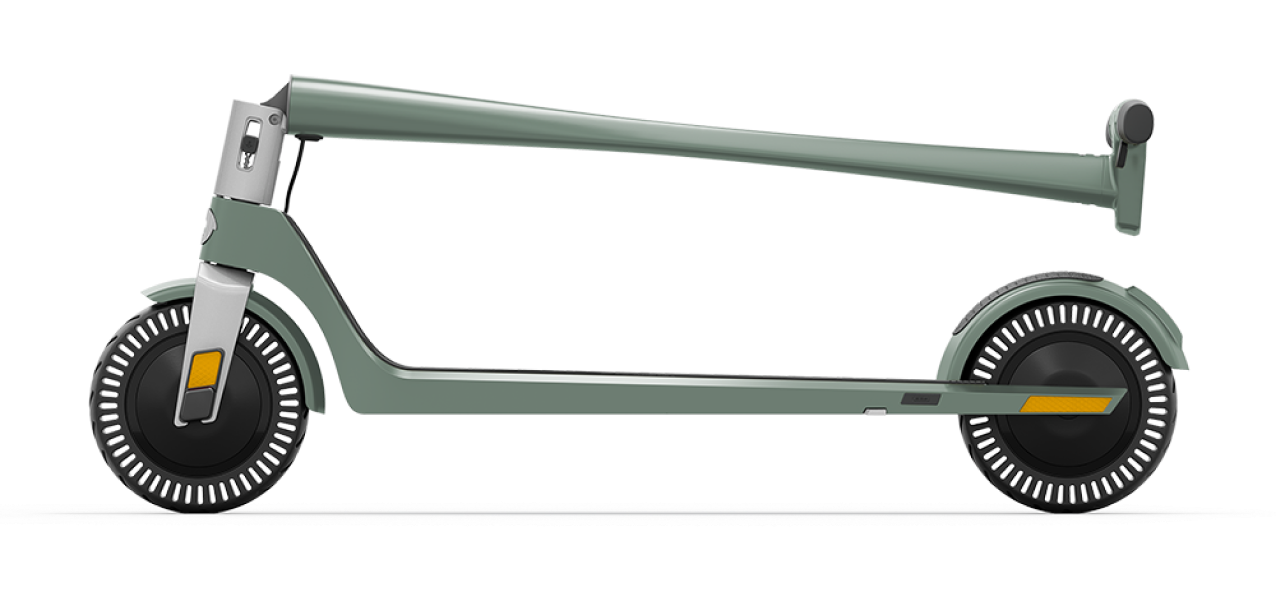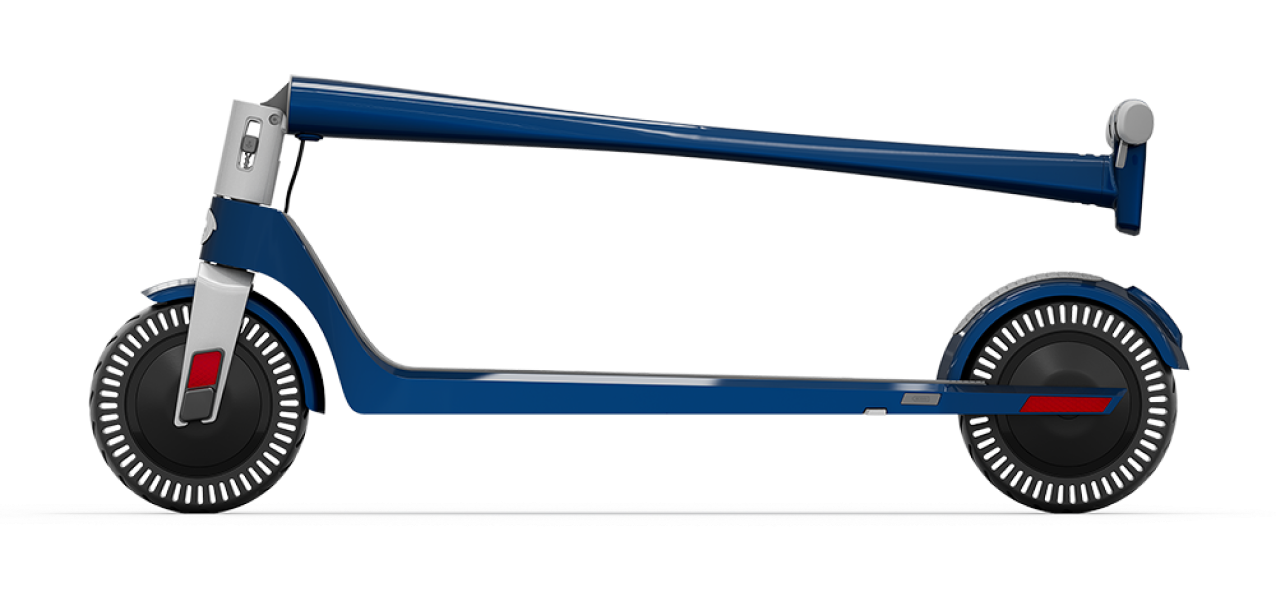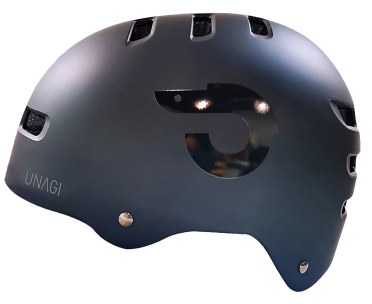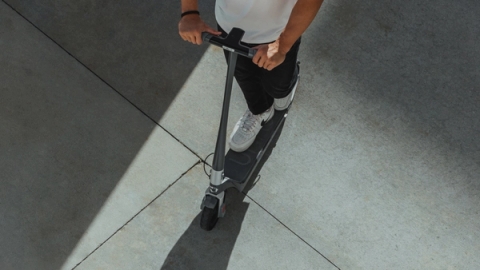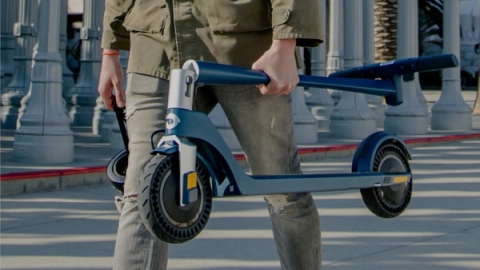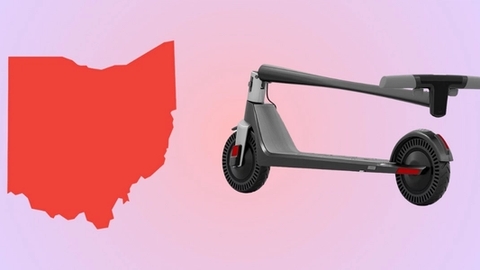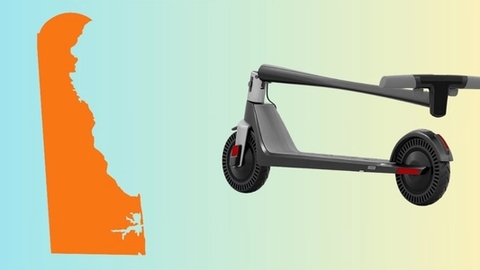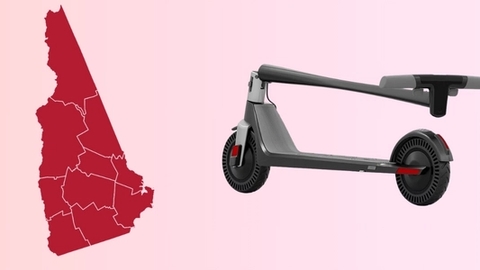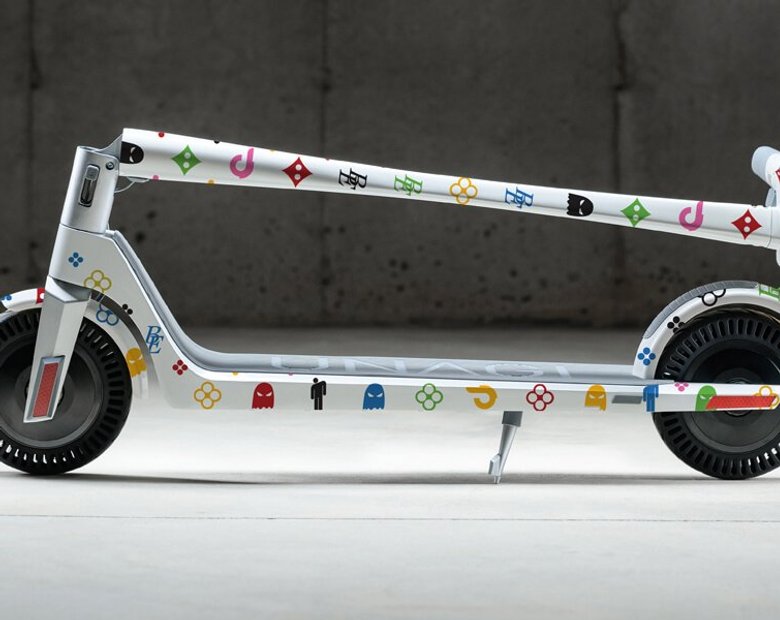Micromobility is here to stay, and it’s changing how we experience urban life for the better. With Unagi’s membership program, you can enjoy all the benefits of a top-tier electric scooter without the sky-high price of ownership or the inconvenience of ride-sharing.
Electric cars have become increasingly popular in the U.S., but their relatively recent adoption has not yet reduced the impact of fossil-fuel powered transportation, which accounts for around 29% of total carbon emissions in the U.S. contributing to climate change and rising global temperatures.
We know that more solutions are needed to reduce greenhouse gas emissions, for example, the widespread adoption of electric scooters in urban environments, where most short trips are under 3 miles and don't require two-to-four-ton four-wheeled vehicles.
But are electric scooters really eco friendly?
Are shared electric scooters good for the environment?
Some critical studies in recent years have cast doubt on the idea, pointing to the environmental impact of building, deploying, charging, and replacing fleets of shared scooters around the world.
While some companies have resolved issues by deploying heavy, near-indestructible electric scooters with swappable batteries, the sharing industry may have a ways to go before it offers a form of environmentally friendly, sustainable transportation.
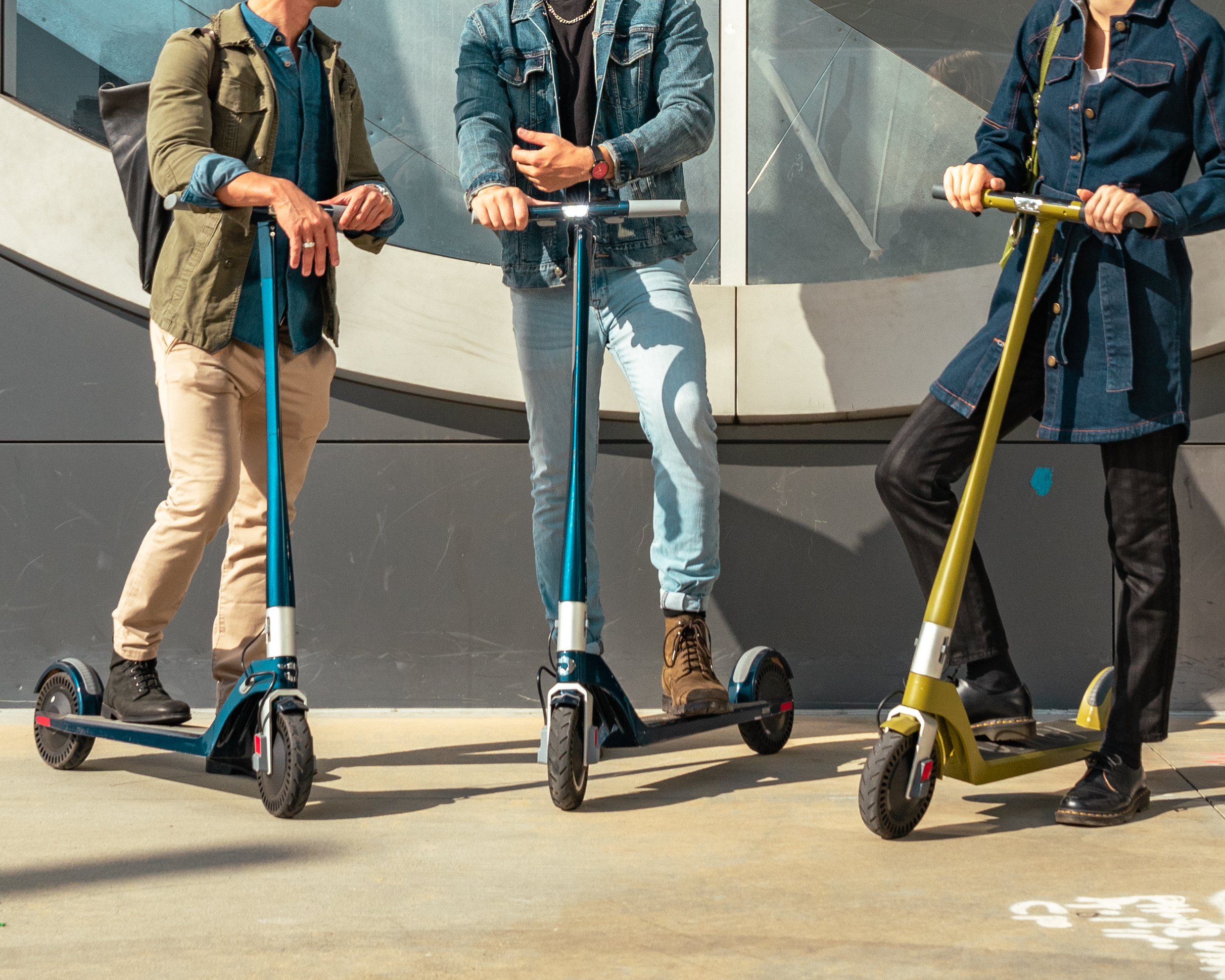
Shared vs owned electric scooters
The problems of scooter sharing don't adhere to owning or renting privately owned electric scooters. Private vehicles are typically stored out of the elements, given more routine maintenance, charged while parked at home, and ridden by one or two people.
Well maintained private electric scooters tend to last their lifespan, about 3-5 years, while rental scooters rarely last longer than 18 months. And owned scooters contribute little to greenhouse gas emissions from charging, since they aren't moved by car or truck to separate charging locations.
Unlike internal combustion engines, electric scooters can be also powered by renewable energy sources. Their low energy consumption means that most scooters use small, portable, laptop-style chargers and that they can even be charged with solar panels and a generator.
It's true that the manufacturing and distribution of electric scooters produce carbon emissions. Environmental standards can vary by manufacturer and country of origin when it comes the the building and transportation of scooters. Individual riders should make informed buying decisions, and ride scooters built from recycled and/or recyclable materials.

When it comes to owning and riding electric scooters themselves, most scooters for adults can replace a large number of car trips, with zero emissions and very little energy consumed. Not only are short commutes to work and school possible on electric scooters, but they can replace cars for most local errands.
But scooters aren't only great solutions for short trips. Electric scooters with high top speeds and long range batteries have become a preferred method of travel for commuters who live a couple dozen miles or more from the office, as well as for off-road adventurers going electric.
Energy efficient electric motors beat gas powered vehicles guzzling fossil fuels every time.
As scooters become more affordable and accessible, their widespread adoption can help significantly reduce air pollution in urban areas while also having significant impact on the sprawl of parking lots and traffic congestion, as we saw during the Coronavirus pandemic when a 50-60 percent reduction in car traffic for just a few weeks led to a drastic reduction of pollutants in the air.
If scooters largely replaced cars for brief commutes, quick store trips, local visits, links to public transit and other short trips, the result would be measurable improvement in air quality in a relatively short period of time.
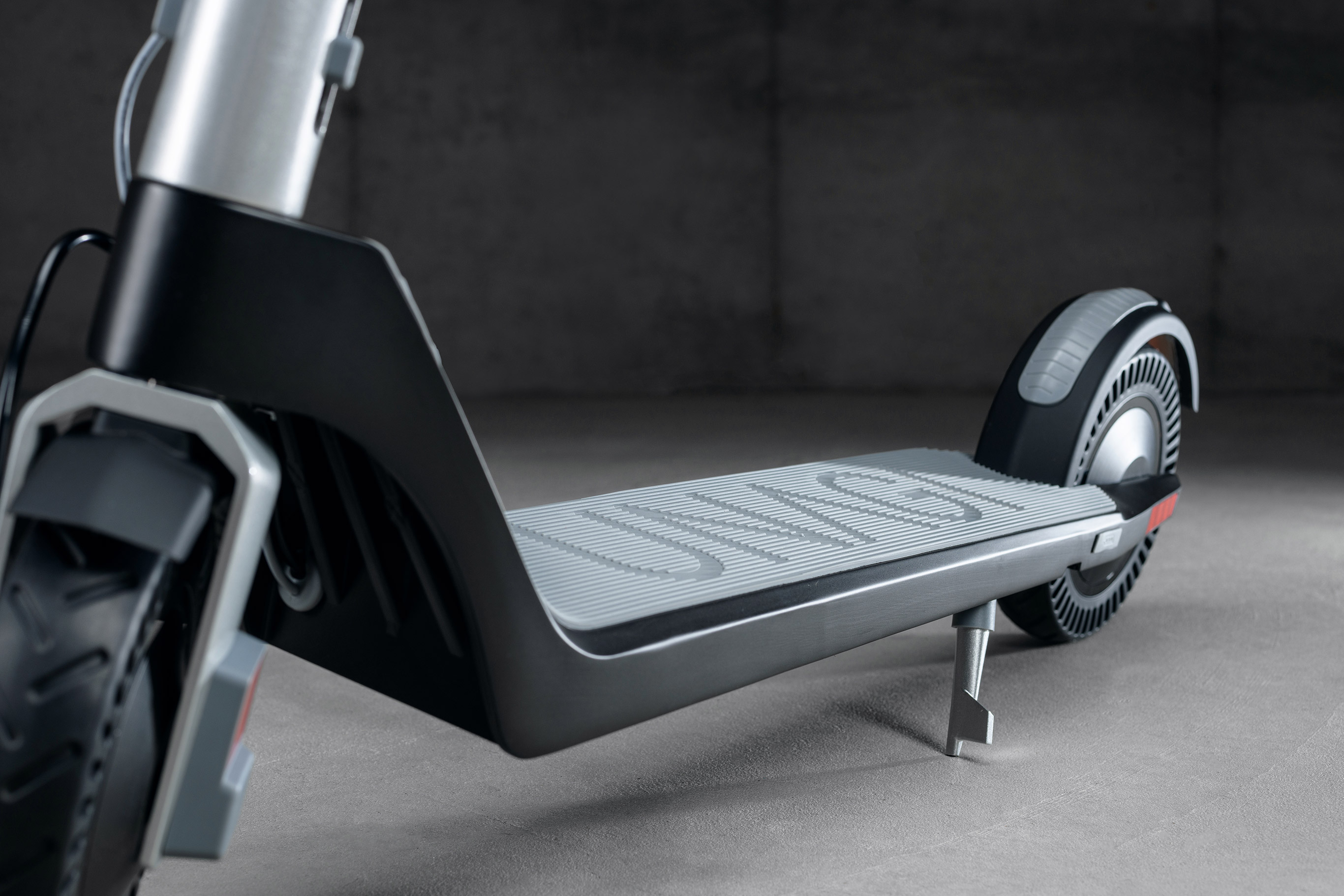
Reducing noise pollution
Electric scooters are an essential part of improving air quality for everyone. Their adoption, along with electric bikes, in an urban environment can help reduce pollution significantly. Scooters also help bring down a form of pollution we may not think about very often.
Maybe humans have grown accustomed to rising levels of noise pollution -- defined by the EPA as "disturbing or unwanted noise" -- in crowded cities full of cars, buses, and construction buses. Or maybe we haven't. It's certainly true the rising levels of noise have disrupted the lives of wild animals, including birds, bats, and other animals that rely on sound to communicate.
And the truth is that rising noise levels do affect us, whether we notice them consciously or not, contributing to rising levels of underlying chronic stress. Electric scooters and e bikes are all but silent, and the more electric vehicles deployed on the road, the less stressed everyone will be.
Reducing light pollution
While it's always a good idea to use the brightest lighting you can when riding an electric scooter at night, you'll still emit a small fraction of a car's headlights. If bike, e bike, and electric scooter lanes replace more car lanes, we can also expect to see much less light pollution at night, which leads to better sleep and less stress!

Making public transit an easy choice
Electric scooters have opened public transit to a wider spectrum of the population by eliminating last-mile barriers to entry. The more commuters in urban areas can use scooters to access subway and bus lines, the more they can leave the car at home, or give it up altogether as an unnecessary expense. And fewer cars on the road means lower carbon emissions, improved air quality, and fewer greenhouse gases driving global climate change.
Other ways e scooters reduce carbon emissions
Greenhouse gases from cars and trucks are the most prominent form of carbon emissions produced daily in the transportation sector. Despite huge investments in electric cars, these emissions continue to rise. But electric scooters can help reduce carbon emissions in other ways than just replacing car trips.
As personal electric vehicles become more popular, the need for parking lots and large garages diminishes. The indirect impact of electric scooters can be felt in the infrastructure of large cities, which in time will require less construction for cars and more environmentally friendly building for humans and small vehicles.
As Transportation Secretary Pete Buttigieg has said:
“An ideal future is one where cars are serving people in cities rather than the other way around.”
Reducing the urban resources allocated to cars and trucks can have huge energy savings, and allocating resources to small vehicles like electric scooters creates a virtuous cycle, incentivizing more electric scooter riders and cyclists, research shows.
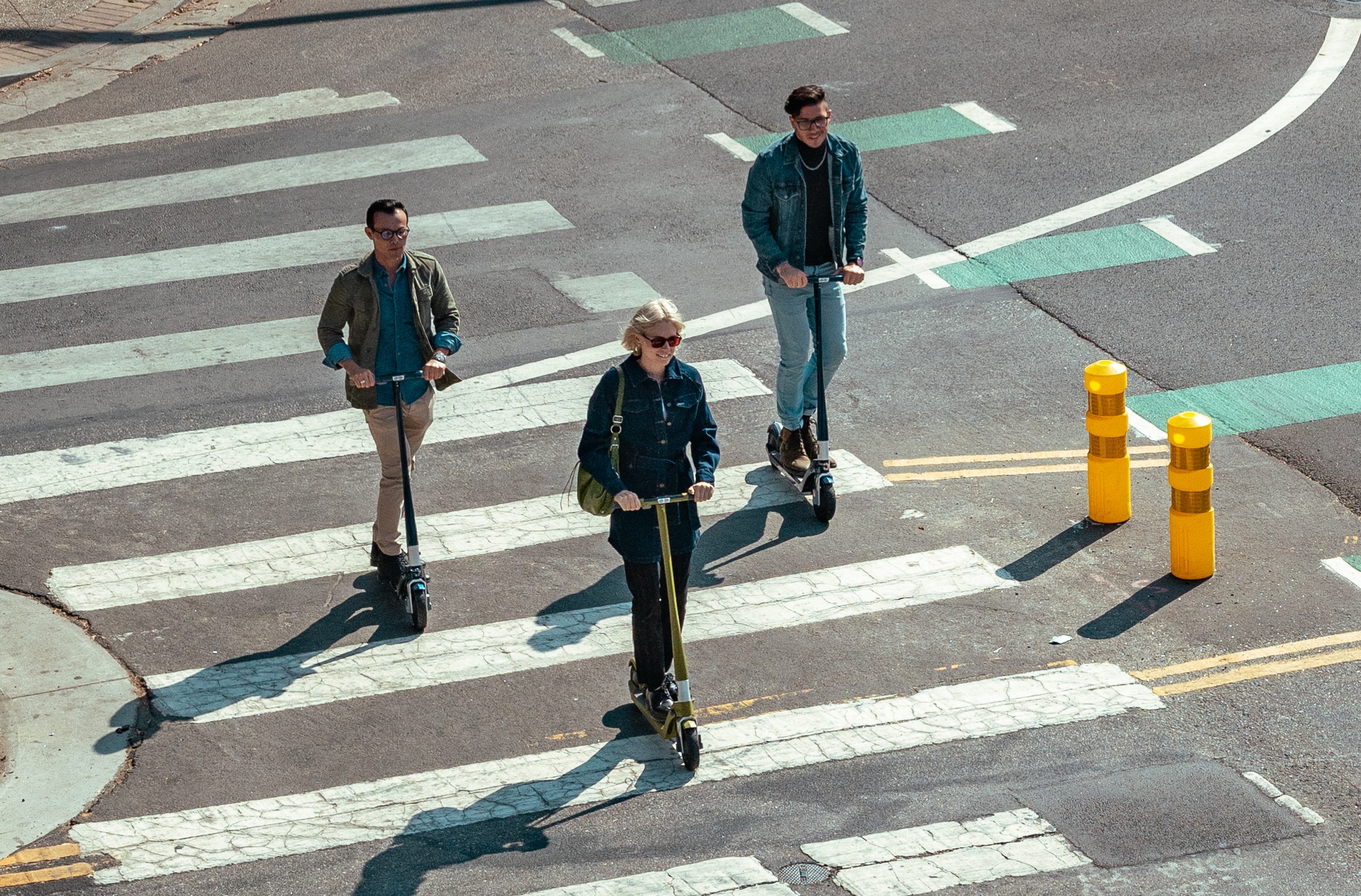
Summary
Spreading the small carbon footprint of electric scooters (whether they're traveling to the corner store or taking long-range trips over long distances) is exactly the positive change we need in more cities around the world. While more city transportation officials are recognizing the benefits of shared scooters, private vehicles, made from recyclable materials, will ultimately have the most environmental impact.
Growing numbers of people and cars, and the resulting traffic congestion and buildup of greenhouse gases in urban areas, have worsened global warming and air quality worldwide, and reduced our quality of life as we spend more time stuck in traffic or dreading the daily commute. Electric scooters are a major part of the solution.
Unagi offers a great way to try out owning your own electric scooter, made from the highest quality materials, with zero-risk and no commitment. When you subscribe, you pay only a small setup fee and monthly rental fee. You won't be locked into a contract and you can send the scooter back free of charge if you decide it's not for you.
Subscribe to Unagi, get out of traffic, leave the car at home, and become part of the solution today.
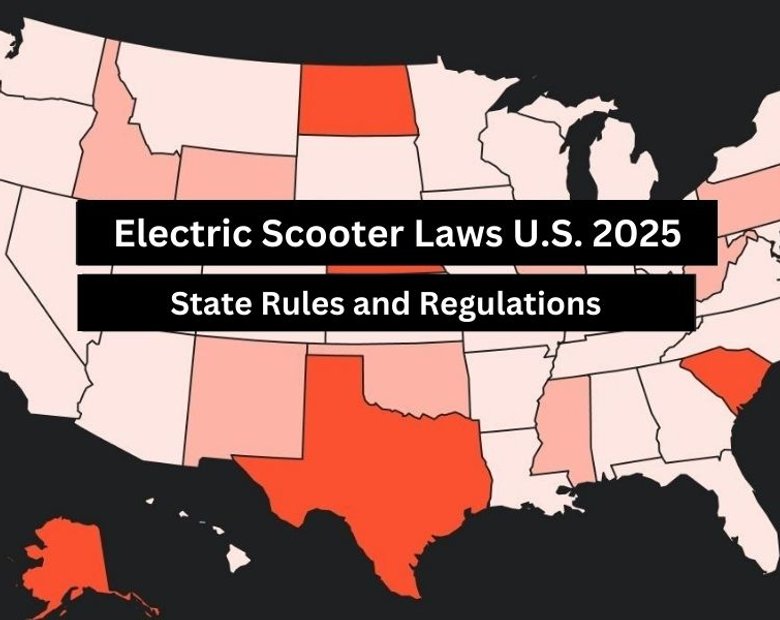
Stay current with the latest U.S. electric scooter laws in our 2025 guide. Updated annually since our first comprehensive guide, ensuring you have the most recent state and city regulations to ride responsibly”
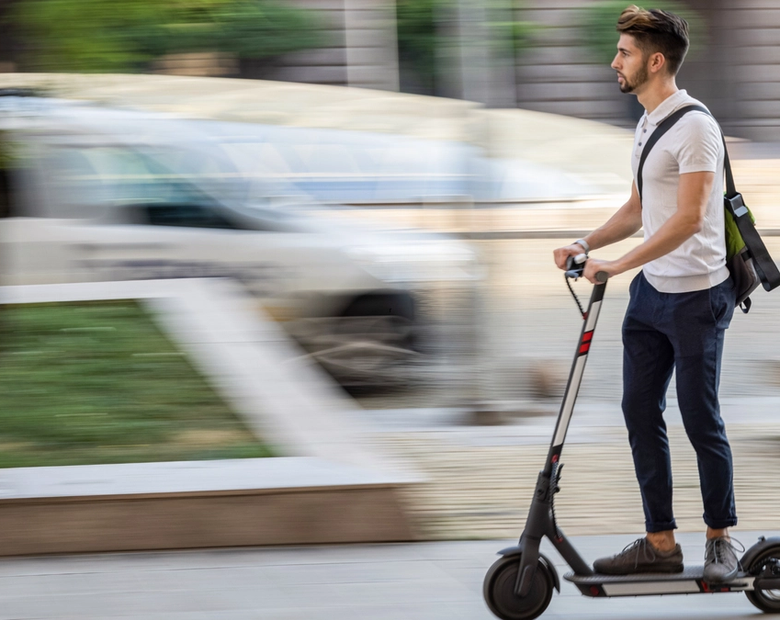
The Slack Core 920R is currently the fastest electric scooter in 2025 that you can purchase without the need for pre-order.
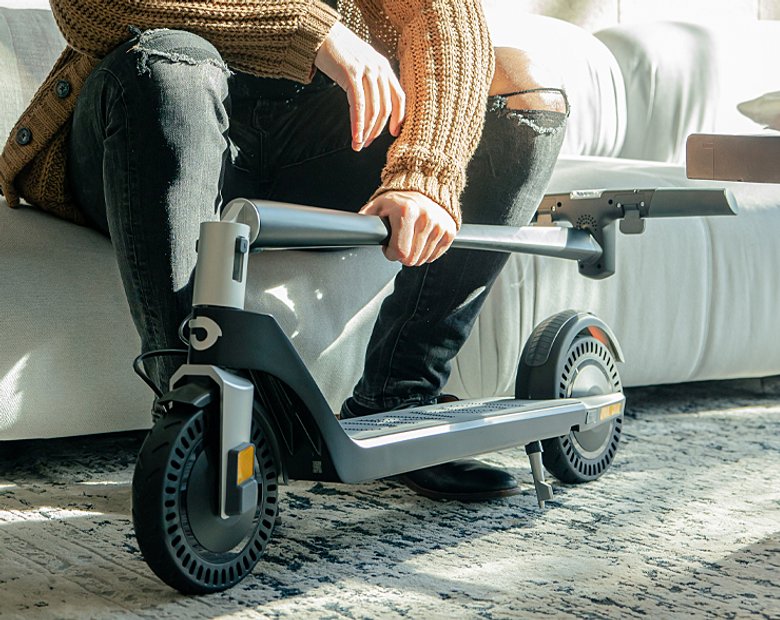
Our selection of the best electric scooters 2025 spans the fastest e-scooters to the most portable ones, the ones designed for city riding and off-road, the best scooters for rain, budget electric scooters for students, and more powerful ones for skilled riders.
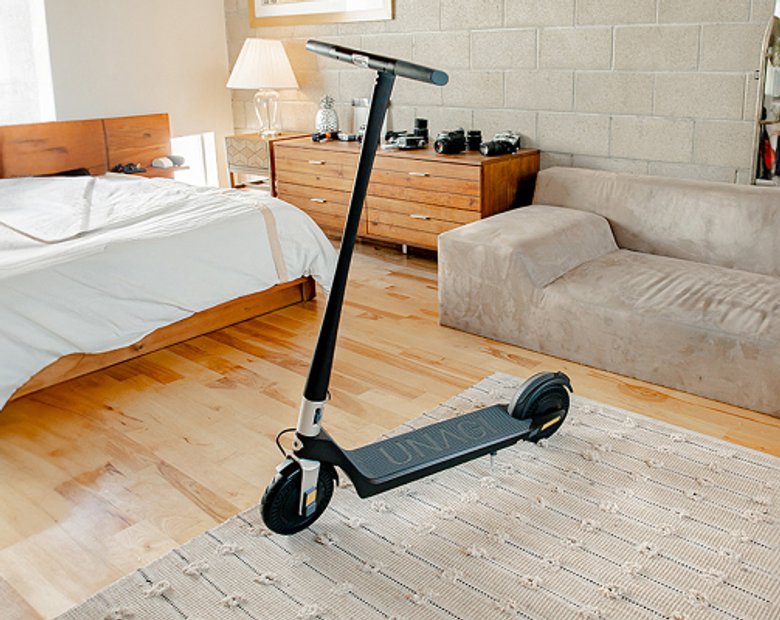
The Unagi Voyager is the best lightweight electric scooter for adults and teenagers. It is the ultraportable sequel to its predecessor, the Unagi Model One Classic.
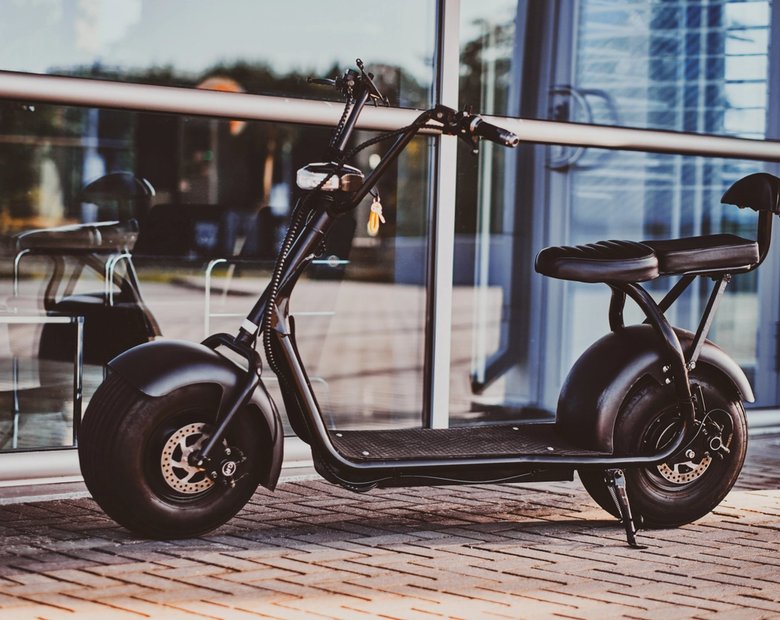
If you're wondering whether an electric scooter with a seat is right for you, this is a detailed article that would suit your need.
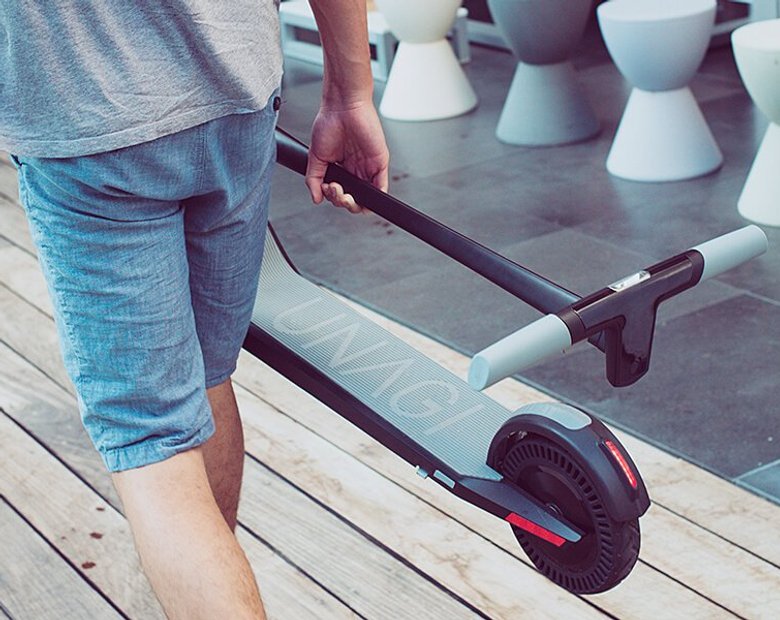
Understand which personal electric vehicle is best, the choice between an electric bike or electric scooter might already be made for you by some critical factors, including portability and storage capacity.
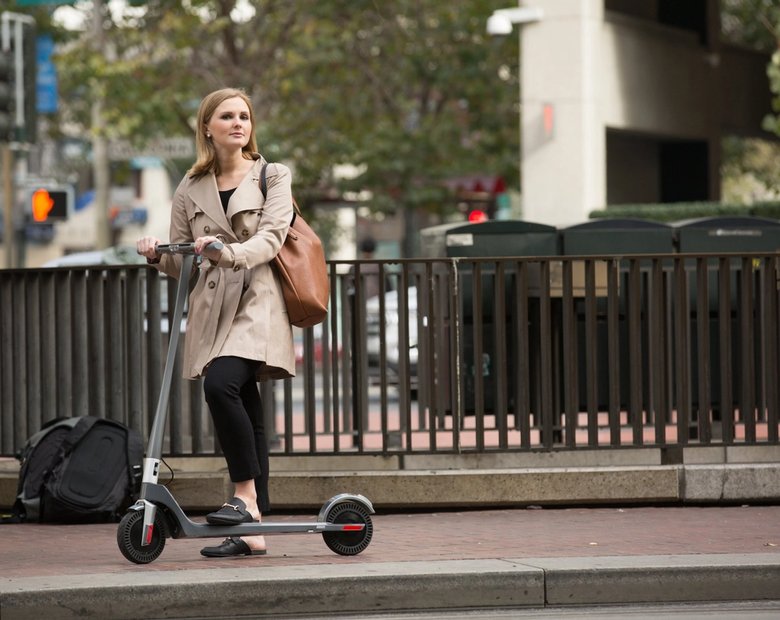
In the U.S., most states don't require a license. For those that do, they usually just ask for a regular driver's license or a learner's permit.
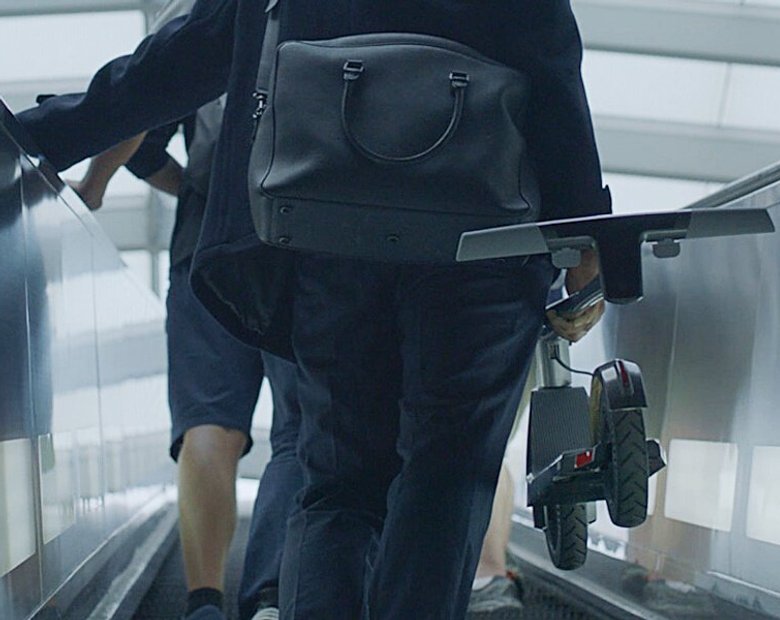
Yes, you can bring an electric scooter on a plane, but it needs to have a lithium battery smaller than 100 watt-hours, which most don't.

Manufacturers advise against riding electric scooters in the rain. The main reasons are: water can fry the electronics, make the ride dangerous, and void your warranty.

The basis and the premise of my work is that we either operate out of love or we operate out of fear...Time is currency. The coolest thing about the scooters is that it's really quick, and it goes uphill. From there, traveling more efficiently and having a good time doing it--I think that's the most important thing.

Cynthia Leu has a full plate. A tech worker by day, Cynthia spends her off time balancing the parallel lives of a powerlifter, entrepreneur, mental health advocate, and more. Riding Unagi helps this USMC veteran cut down on everyday…

https://www.youtube.com/watch?v=7m2hVBE62LY Rasheed Muhammad is sick of Los Angeles traffic. In order to preserve his sanity, Rasheed has traded his everyday driving habit for the portable and beautiful Unagi Model One. It’s an essential accessory for navigating LA streets -- and…

Rich Lee, Co-Founder of San Francisco’s SPRO Coffee Lab, wants to share his love for coffee with the world. He depends on riding Unagi to avoid the hassle of navigating the parking crunch in the booming Mission Bay neighborhood.…

